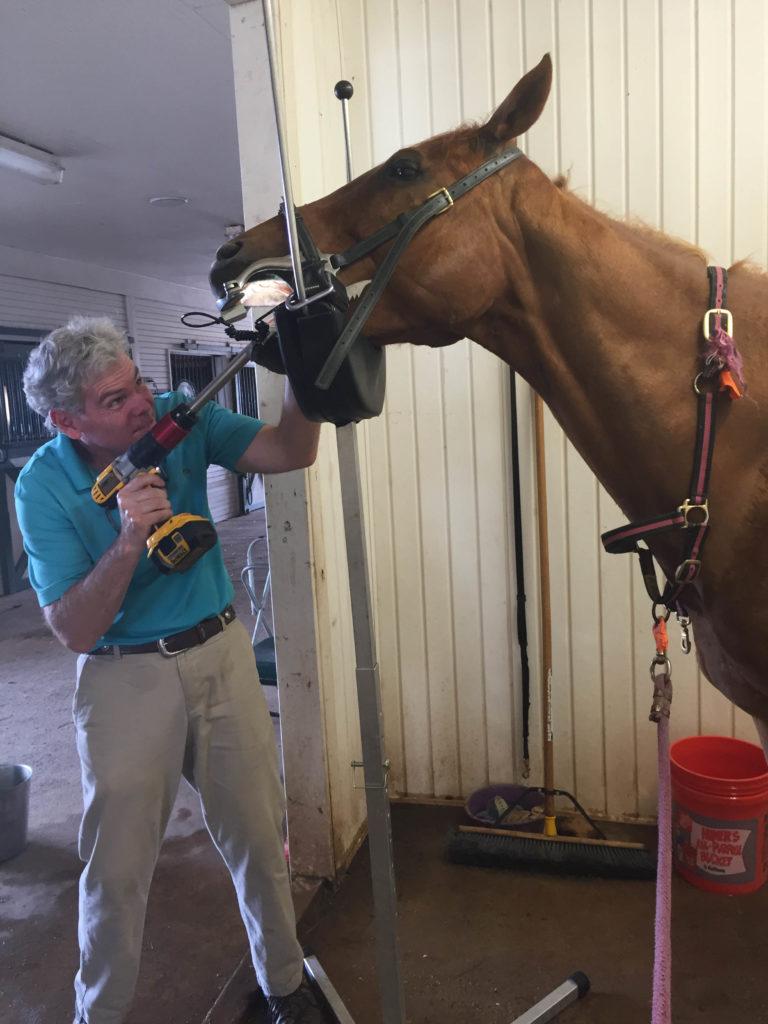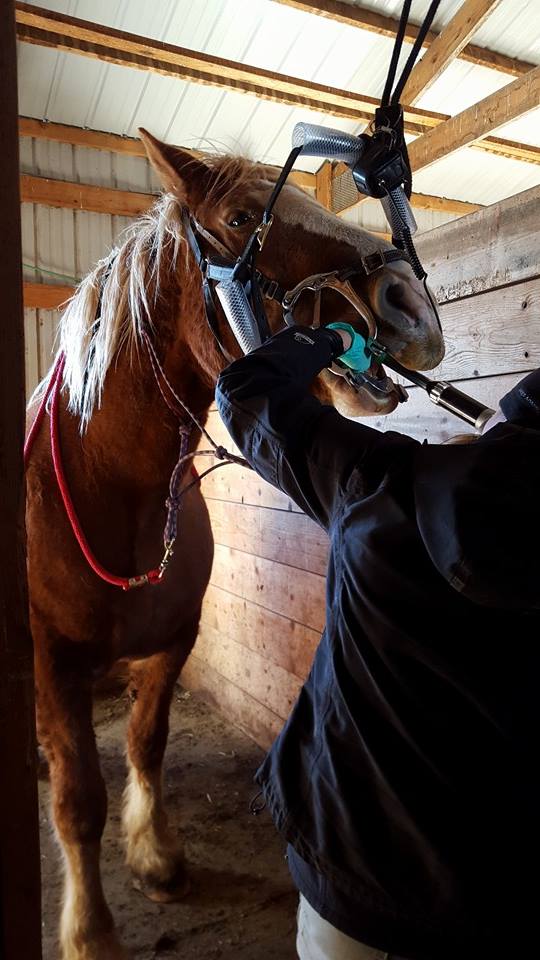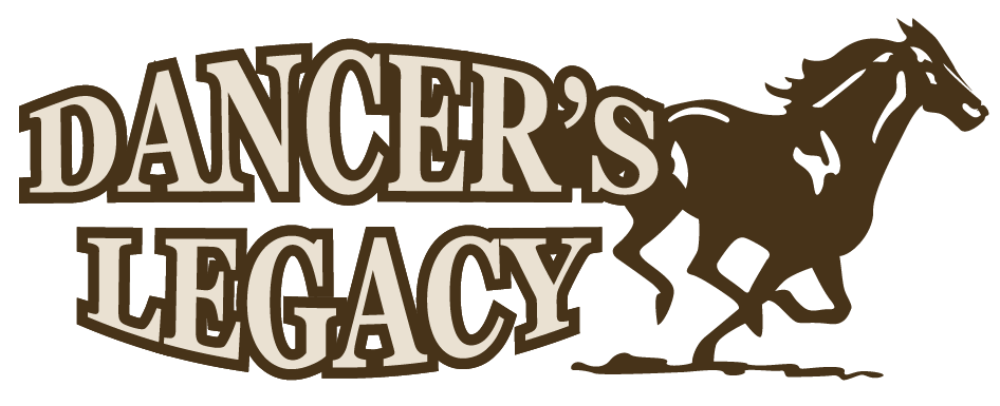Equine Dentistry

Regular dental care for horses is critical to both their comfort and health.
Equine dentistry has made many advances in recent years and these improvements help horses lead happier and healthier lives.
Horses have teeth with very long roots; the teeth gradually erupt more each year. Horses will naturally wear down their teeth via chewing; however, they often wear them in a way which causes sharp points on the outside of top teeth and on the inside of bottom teeth. The sharp points often cause ulcers on the inside of the cheeks and on the tongue, both of which cause a lot of pain to the horse.
Floating teeth levels out any imbalances caused by tooth wear. Normally the veterinarian will sedate a horse and use a speculum to hold open the mouth to examine it for any dental issues then float the teeth. Incisors and molars are examined and floated to ensure an even wearing chewing surface. Vets use either hand floats or power floats. The hand float is similar to a rasp and has a long handle designed for dentistry. Power floats have a rotating head at the end of a long road; these are usually quicker and preferred by equine dentists. The longer handle of either instrument allows the vet to access the molars in the back of a horse’s mouth.
During the examination, the vet will look for sharp points, ulcers, hooks, waves and step mouth patterns. Hooks are sharp areas on either the front or back edge of a tooth; they result from uneven tooth wear. A wave mouth is a pattern of wear which looks like a wave more than a flat surface across the molars. Step mouth means there is a molar which has erupted higher than the other teeth; the corresponding tooth becomes too short or can be missing.
The vet will also look for cavities, infected teeth or gums and any loose, fractured or missing teeth. More severe dental issues could take a few visits to correct. Normal floating takes about 15‐20 minutes and should be painless. The vet should also include a bit seat – this is where pre‐molars are rounded to lessen pain created when a bit causes the cheek to fold and pinch between the mouthpiece and the teeth.

All horses, regardless of age, should have annual dental exams. Owners should not wait until a horse is dropping its feed or balling up hay and spitting it out, nor should anyone wait until a horse is losing weight possibly due to dental issues.
Signs of serious dental issues might include difficulty chewing, balling up and spitting out hay (called quidding), blood in the mouth, discharge from the nose, mouth odor, excess salivation, facial swelling, tossing of the head, reluctance to take a bit or even excessive bit chewing or weight loss.
Wolf teeth in horses usually erupt between 4 to 6 months of age. These teeth are small in size and erupt in front of the pre‐molars. Wolf teeth should be removed before any bit work as their location can cause pain and discomfort as a bit will hit that area. Veterinarians usually remove wolf teeth when castrating stud colts as the horse is already under sedation.
Canine teeth are larger than the wolf teeth and erupt in the large gap between the incisors and molars, usually at age 4 to 5 years. Male horses often have four canine teeth, while the females only have two. These teeth do not usually cause problems.
Young horses will lose their baby teeth also called caps. Sometimes this process is painful; the caps can become impacted and need extraction by a vet. Floating a young horse’s teeth is very important as their teeth are softer and wear into sharp points faster than those of older horses.
Over time a horse’s teeth will fall out as they age. As the teeth continue to erupt over time, they can loosen causing discomfort and food may pack around them causing infection. As the teeth wear, there is less chewing surface; therefore, older horses often require some adjustments to their diets allowing for senior feed or soaked feed when they are unable to properly chew hay.
Veterinarians have training in basic equine dentistry. However, there are more and more vets taking additional training to become more specialized in dentistry. Remember, routine dental care is a must for all horses as a critical part of ensuring their health and well‐being.
